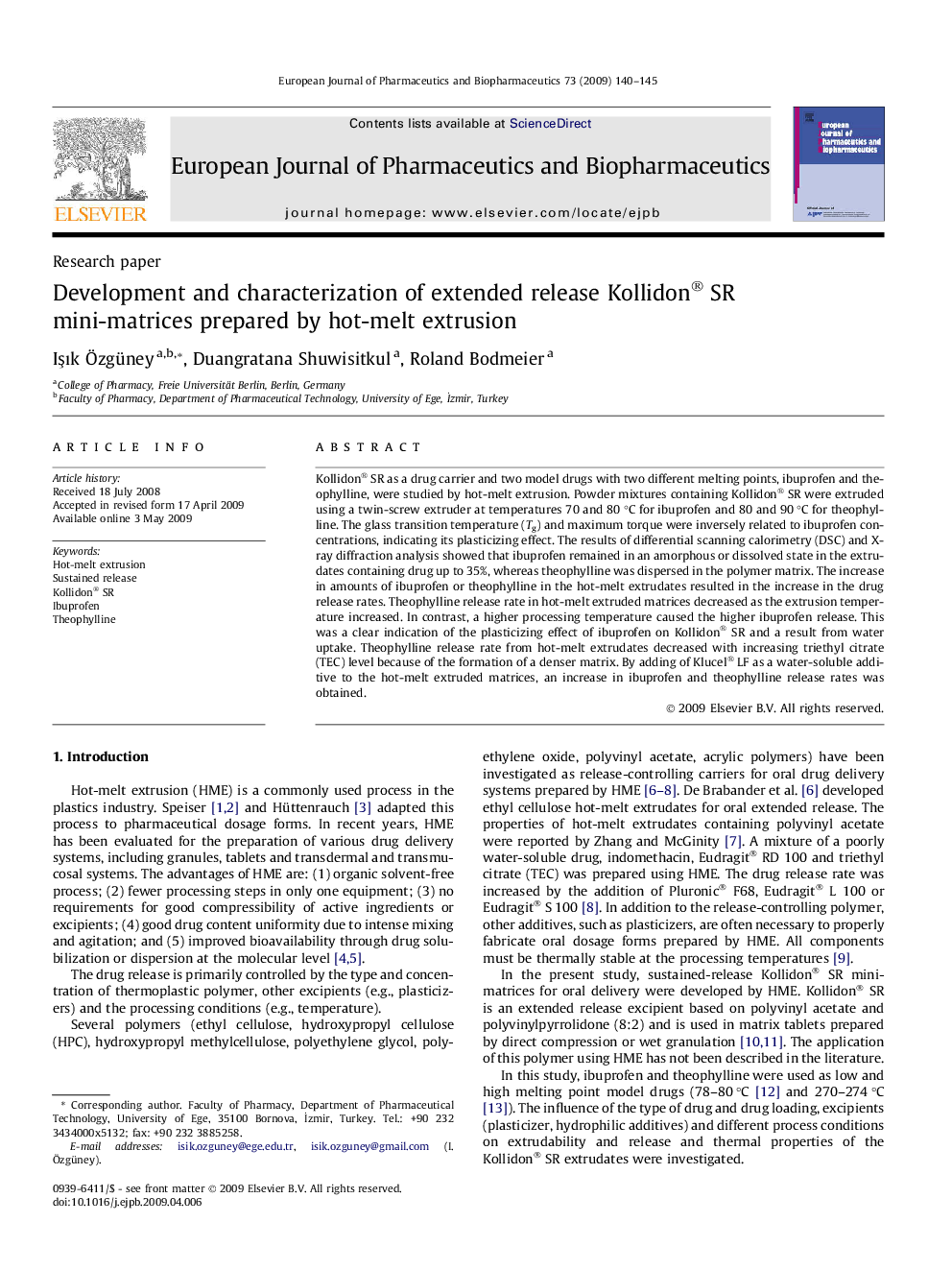| Article ID | Journal | Published Year | Pages | File Type |
|---|---|---|---|---|
| 2085600 | European Journal of Pharmaceutics and Biopharmaceutics | 2009 | 6 Pages |
Kollidon® SR as a drug carrier and two model drugs with two different melting points, ibuprofen and theophylline, were studied by hot-melt extrusion. Powder mixtures containing Kollidon® SR were extruded using a twin-screw extruder at temperatures 70 and 80 °C for ibuprofen and 80 and 90 °C for theophylline. The glass transition temperature (Tg) and maximum torque were inversely related to ibuprofen concentrations, indicating its plasticizing effect. The results of differential scanning calorimetry (DSC) and X-ray diffraction analysis showed that ibuprofen remained in an amorphous or dissolved state in the extrudates containing drug up to 35%, whereas theophylline was dispersed in the polymer matrix. The increase in amounts of ibuprofen or theophylline in the hot-melt extrudates resulted in the increase in the drug release rates. Theophylline release rate in hot-melt extruded matrices decreased as the extrusion temperature increased. In contrast, a higher processing temperature caused the higher ibuprofen release. This was a clear indication of the plasticizing effect of ibuprofen on Kollidon® SR and a result from water uptake. Theophylline release rate from hot-melt extrudates decreased with increasing triethyl citrate (TEC) level because of the formation of a denser matrix. By adding of Klucel® LF as a water-soluble additive to the hot-melt extruded matrices, an increase in ibuprofen and theophylline release rates was obtained.
